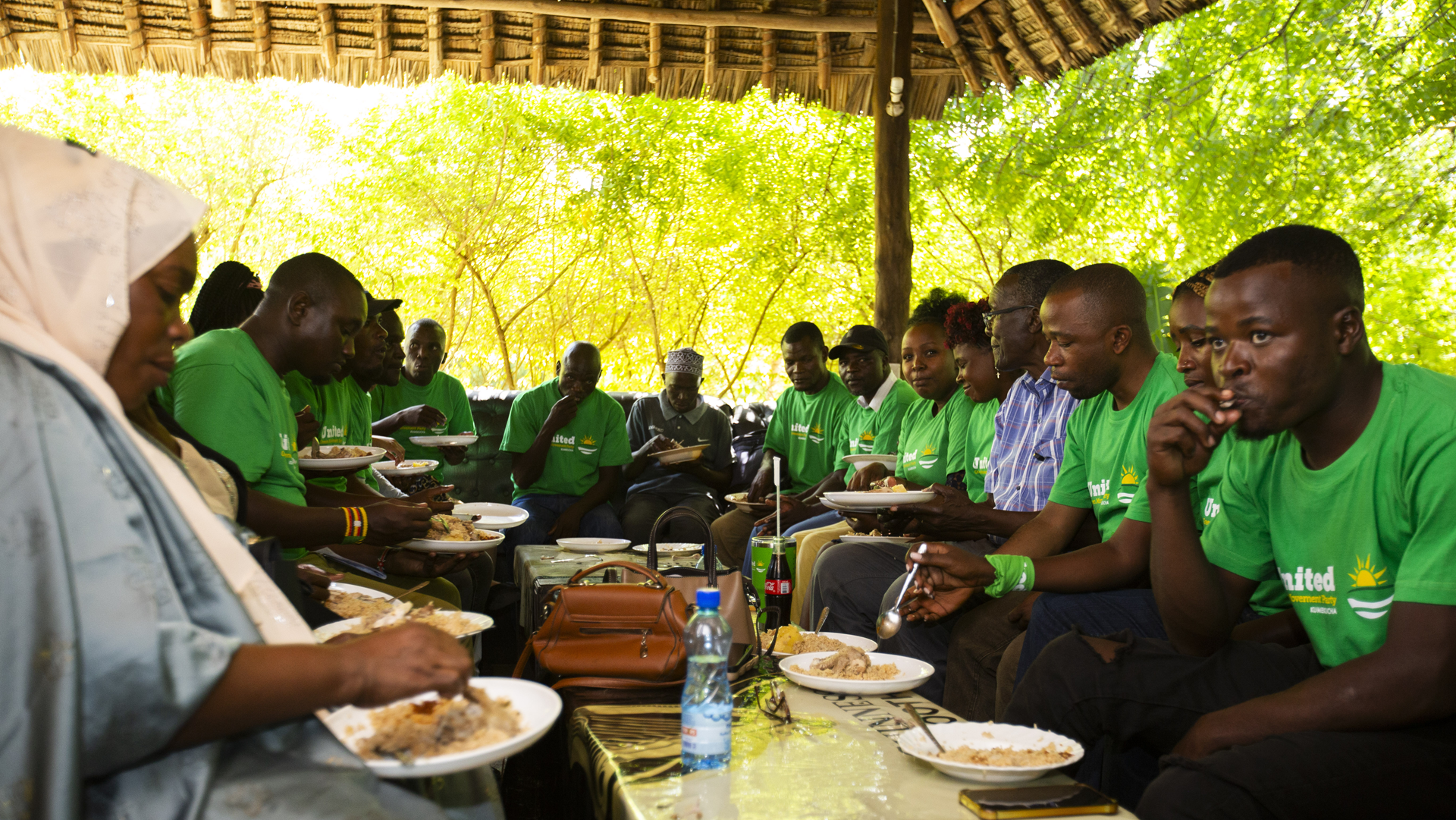By Lewis Ngunyi
First published: here
By Lewis Ngunyi

There’s an old strategy in medieval warfare. When a king finds himself hated by a significant number of his people, his armies beaten back, his castles falling in sequence, he retreats into a final fortress; a siege castle.
He knows he can’t win hearts anymore, so he builds walls instead. He gathers the last of his loyalists, and whomever else he can gather inside the walls, locks the gates, and dares the world: Come for me if you must, but you’ll pay dearly in the attempt.
But even more sinister, he says to those with him: you’re in this castle with me now, so whether you like it or not, this is your battle now too.
William Ruto is building his siege castle.
He knows it. You know it. Everyone knows it. The President has comprehensively burned through his political goodwill. His once golden touch has revealed itself as the reverse of Midas: everything he lays hands on turns to ash.
And yet, that very reverse Midas touch is now his weapon.
Ruto understands that in a country always thirsty for outrage, he can weaponise failure itself. He no longer needs to inspire love.
All he needs to do is drag enough people into the dirt with him so that nobody is left clean. Then, when Kenyans go looking for saints to rally behind, they’ll find only more sinners.
Take Faith Odhiambo, the Law Society of Kenya’s firebrand president, as a case study. She’s a hero to many, a symbol of defiance against a state that often seems allergic to accountability. Her name carries weight, her voice cuts through the noise.
So, what does Ruto do? He doesn’t side-line her outright — that’s too crude. Instead, he elevates her, positions her in a way that makes her a lightning rod for scrutiny.
Suddenly, the same public that cheered her on is questioning her motives, her alliances, her every move.
The anti-Faith narrative didn’t spring from nowhere, either, and you’d be very naïve to think it did.
It’s too coordinated, too relentless to be organic. One can’t help but suspect the State’s propaganda machine at work, subtly fanning the flames online, planting seeds of doubt. “Look at her. Even she is not clean. No one is.” And just like that, a hero is tarnished by the sheer weight of suspicion.
The goal is not to defeat Faith Odhiambo. The goal is to break her spirit. To make her sit down at night, and whisper to herself: Look at the people I’m fighting for. Look how quickly they turned on me, even before I had the chance to falter.
That is how you dismantle resistance. By turning their own followers against them until the fight feels pointless.
Until the hero either drops the sword entirely or takes the easier option: cross the lines, shake hands with the tyrant, and at least, if you’re damned either way, you might as well get paid for it.
And here’s where the uncomfortable truth sits. This strategy works only because we, the public, keep feeding it.
We have developed a fetish for rage. Every day we wake up looking for the next villain, the next tweet to foam over, the next clip to forward with disgust. We convince ourselves that this is patriotism, that outrage is resistance. But in reality, it is fuel for Ruto’s siege engine.
He doesn’t need to make us love him. He only needs to make us doubt everyone else. And our pitiful gullibility, our obsession with puritanism, does the heavy lifting.
The moment a new voice rises, we sharpen our knives. What did she post in 2016? Where was he when Uhuru was stealing?
How can we trust someone who once did this and that…? And just like that, we chop down our own defenders before they’ve even marched to the battlefield. Ruto doesn’t need to win any more. He just needs us to keep losing.
And this is all preparation for 2027. Ruto intends to hold State House at any cost, and his strategy is to make the field so barren of trust, so littered with corpses of former heroes, that when the election arrives, Kenyans will look around and see nobody of a different mold to him.
The only ones still standing will be those too compromised, too bloodied, or too exhausted to pose a real threat.
The rest will be inside his siege castle, not because they love him, but because the alternative (being endlessly attacked by their own people) will seem unbearable.
By then, his propaganda machine won’t need to persuade us of his greatness. It will only need to remind us that everyone else has already been proven corrupt, selfish, or unworthy, better him that has money to offer us.
So here is the challenge every Kenyan needs to wrestle with: Is your daily outrage helping you, or helping him? Do you need to erupt at every whisper of imperfection? Do you need to cut down every leader who dares to raise their head? Or would your anger be better spent holding focus on the thieves bleeding the country dry?
We cannot afford to keep burning our own house in pursuit of false purity. Kenya does not need saints. Kenya needs fighters — flawed, human, scarred fighters. Fighters who will stand in the fire long enough to win something for the people.
If we continue cannibalising anyone who dares to lead, then we will wake up in 2027 exactly where Ruto wants us: furious, divided, disillusioned, and facing a ballot with no credible alternative.
The siege castle can only work if the attackers are unorganized and undisciplined. That is us right now: a mob with torches but no plan, burning each other while the tyrant sharpens his arrows behind the walls.
The way to break the siege is not more outrage. It is focus. Discipline. Choosing our battles carefully and protecting those who carry our banner, even when they stumble. Actually no. Especially when they stumble.
————————————-
Disclaimer:
The views and opinions expressed in this article are solely those of the author and do not necessarily reflect the official position of the David Maraga Campaign or its leadership. Publication of this article in our newsletter is intended to foster open dialogue. Readers are encouraged to form their own judgments based on a broad range of perspectives.








